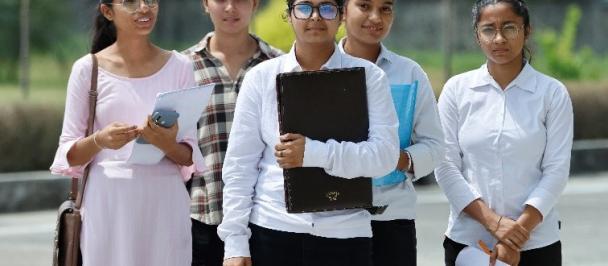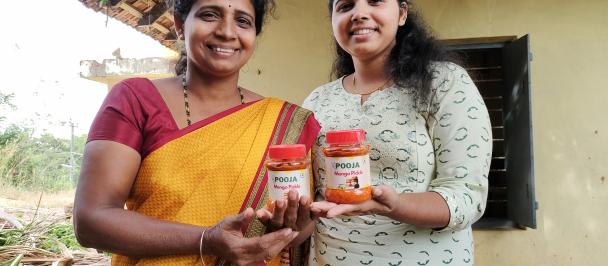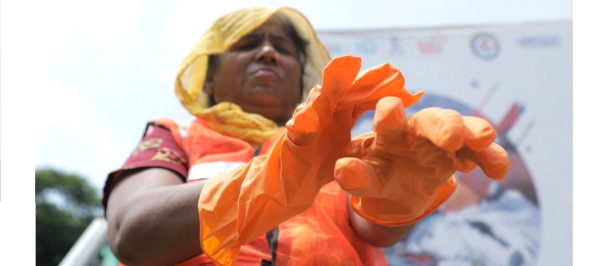
Gender Equality
Gender Equality and Leaving No One Behind are central to the 2030 Agenda for Sustainable Development and the Sustainable Development Goals (SDGs). UNDP is in the unique position of working across all 17 SDG commitments and galvanising action to achieve gender equality.
Gender Equality, Diversity and Inclusion are cornerstones of UNDP’s work in India. They impact everything that we do. Across our portfolio of Inclusive Growth, Strengthening Health Systems and Institutions, and Environment, Energy & Resilience, ensuring that women and men in all their diversities have equal rights, opportunities and entitlements is a key priority. Working with men and boys as allies and agents of change is also a key strategy that cuts across all our portfolios.
We work in partnership with policy makers, civil society actors, the private sector and communities on the ground to create an environment that supports rights and entitlements of people we serve. Our work is informed by the understanding that women and men in their diversities have different needs and programmes need to respond to it.
UNDP is working closely with the Government and its wide range of partners to create equal employment opportunities for young women through its education to employment transition programme. We work with national and state governments to equip young women with 21st century skills and digital literacy to enhance their employment opportunities.
Optimising the potential of medium and small-scale industries, our work harnesses the entrepreneurship potential of women by linking them to investors and mentorship. We believe in the catalytic power of innovation and experimentation and are using behavioural science and ‘’nudge’’ approaches to increase men’s participation in unpaid care work.
Our partnership with the Government of India through COWIN has helped deliver the largest vaccination programme in the world with over seventy thousand female health workers, vaccinators and trainers playing a critical role in the vaccine value chain management system. We support national and state efforts to create inclusive policies that increase trans people’s access to services including vaccines, health and social protection schemes. Our work in the Energy Environment and Resilience portfolio puts gender equality at the centre of caring for people and planet. Implementing gender equality commitments in climate action plans through Gender responsive natural resource management remain our priorities.
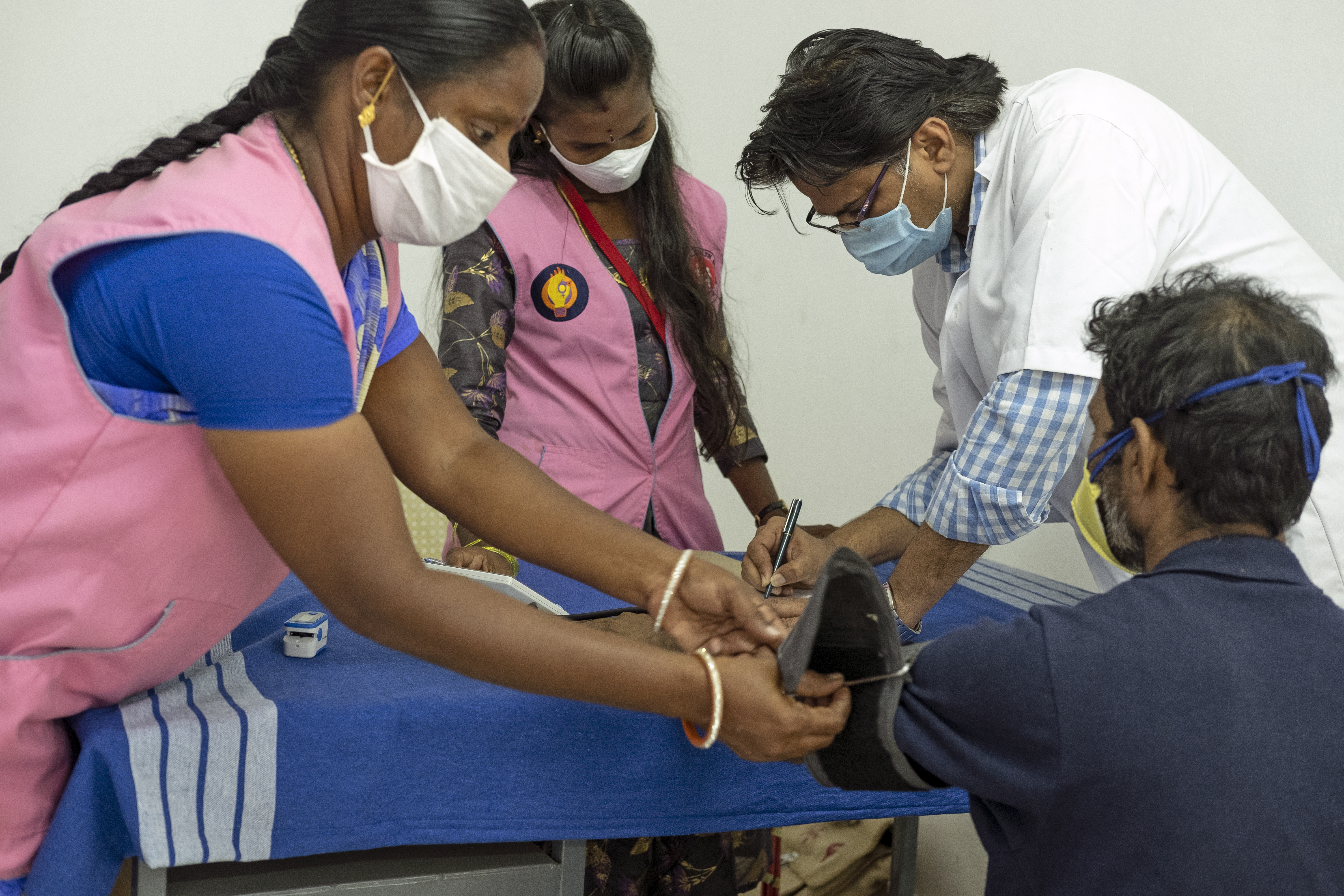
The Road to Equality
When it comes to bridging the gender gap across several development indices, much ground remains to be covered.
- Female workforce participation rate continues to be low at 25.1 % (2020-2021), one of the lowest in South Asia
- Literacy levels between men and women is still skewed at 84.4% to 71.5% respectively
- The proportion of skilled female workforce in the country is rising slowly from a low base, moving from 1.7% to 2.9% between 2017 and 2020, and continues to lag behind that of men (3.5%)
- Digital divide persists with 33.3% women compared to 57.1% men reporting ever using the internet between 2019-2021
- Climate-induced displacement and migration in India leads to at least 12-14 hours of added work for women further increasing the opportunity cost related to unpaid care work
- While there has been a decline in women reporting spousal violence (ever married women in the age of 18-49 years) from 31.2% (2015-2016) to 29.3% in (2019-2021); justification for use of violence in interpersonal relations continues to be high
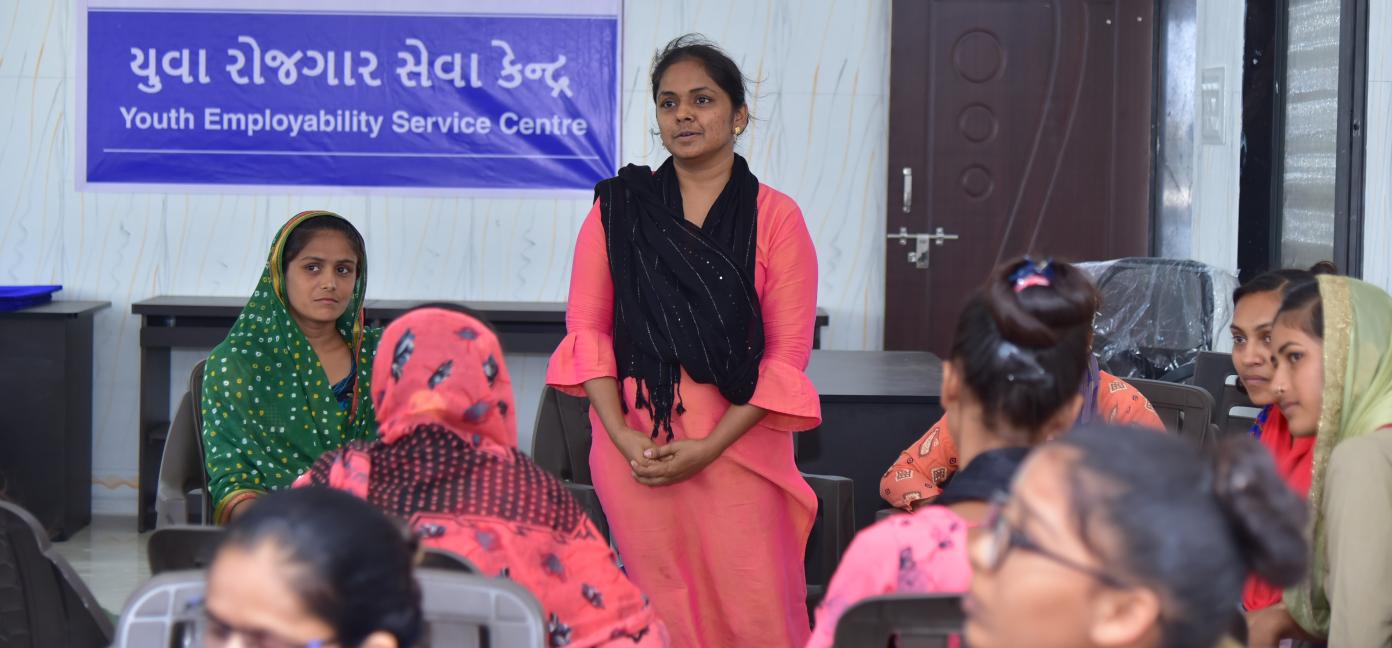
Joining hands to support actions for gender equality
In India, UNDP is committed to work with national and state governments, the private sector; civil society organisations and implementing partners to support gender equality. We use our convening power and strong partnerships to advance gender equality.
We continue to work with our partners to co-create solutions for some of the most challenging development priorities:
• Using the power of digitalisation to strengthen public health delivery system to achieve universal health care – particularly immunization and vaccination
• Facilitating and enabling skilling, employment and entrepreneurship opportunities to leverage India’s demographic dividend and increase employment potential for women and youth, including in non-traditional sectors.
• Reducing the gender gap in digital access, as digital empowerment is a key lever of social change
• Putting women in the center of climate action and climate justice to mitigate the disproportionate impact and harness women’s leadership roles
Join us as partners in creating an equal, diverse and Inspiring India!
• Learn more about UNDP’s partnership with the Government of India to increase vaccine equity and accessibility for all genders in the largest vaccination drive of the world
COWIN for all Genders
How to engender the value chain? Our female partners in the state of Uttar Pradesh show the way!
• The COVID 19 pandemic has changed the face and future of work globally. What does it mean for women workers in a country like India? Find out more from the comprehensive survey carried out by UNDP in partnership with the Federation of Chambers of Commerce on emerging opportunities and challenges for women
• Women lead the way in biodiversity conservation! Know more about women’s collectives playing a central role in biodiversity conservation in Kerela
• Digital Inclusion is a lever for social change. The Digital Inclusion Navigator is a one stop shop for data, best practices on inclusion. Continue to watch this space as it evolves
• The disproportionate share of unpaid care work undertaken by women is a barrier to unleashing their full potential, and to achieving gender equality (or SDG5). Using behavioural insights and nudge principles, UNDP is working to shift the balance. Learn more about how these principles can be applied through an easy to apply handbook.
Behavioural Insights Framework
• This report presents a behavioural insights (BI) framework to support practitioners in designing and implementing interventions to foster change in families and communities toward a more equal sharing of unpaid care work between men and women. The primary intended user of this framework is UNDP personnel that lead the implementation of programmes in the India Country Offices as well as in other country offices and region, globally, who wish to create new Social and Behaviour Change (SBC) programming or embed it within the existing programming addressing unpaid care work. Ideally, this framework will be utilised to develop comprehensive multi-year multi-sectorial programming that addresses the various behavioural determinants at hand. It goes beyond a ‘one-off’ social media campaign and requires joint efforts at all levels (individual, community, societal and institutional levels).

 Locations
Locations
